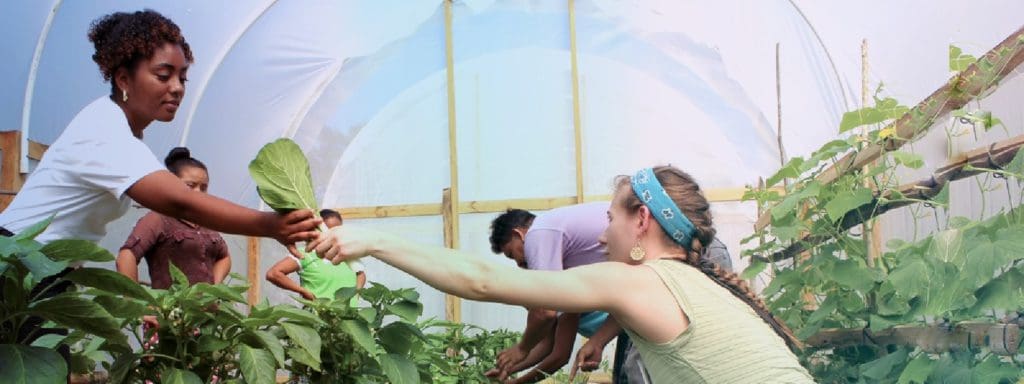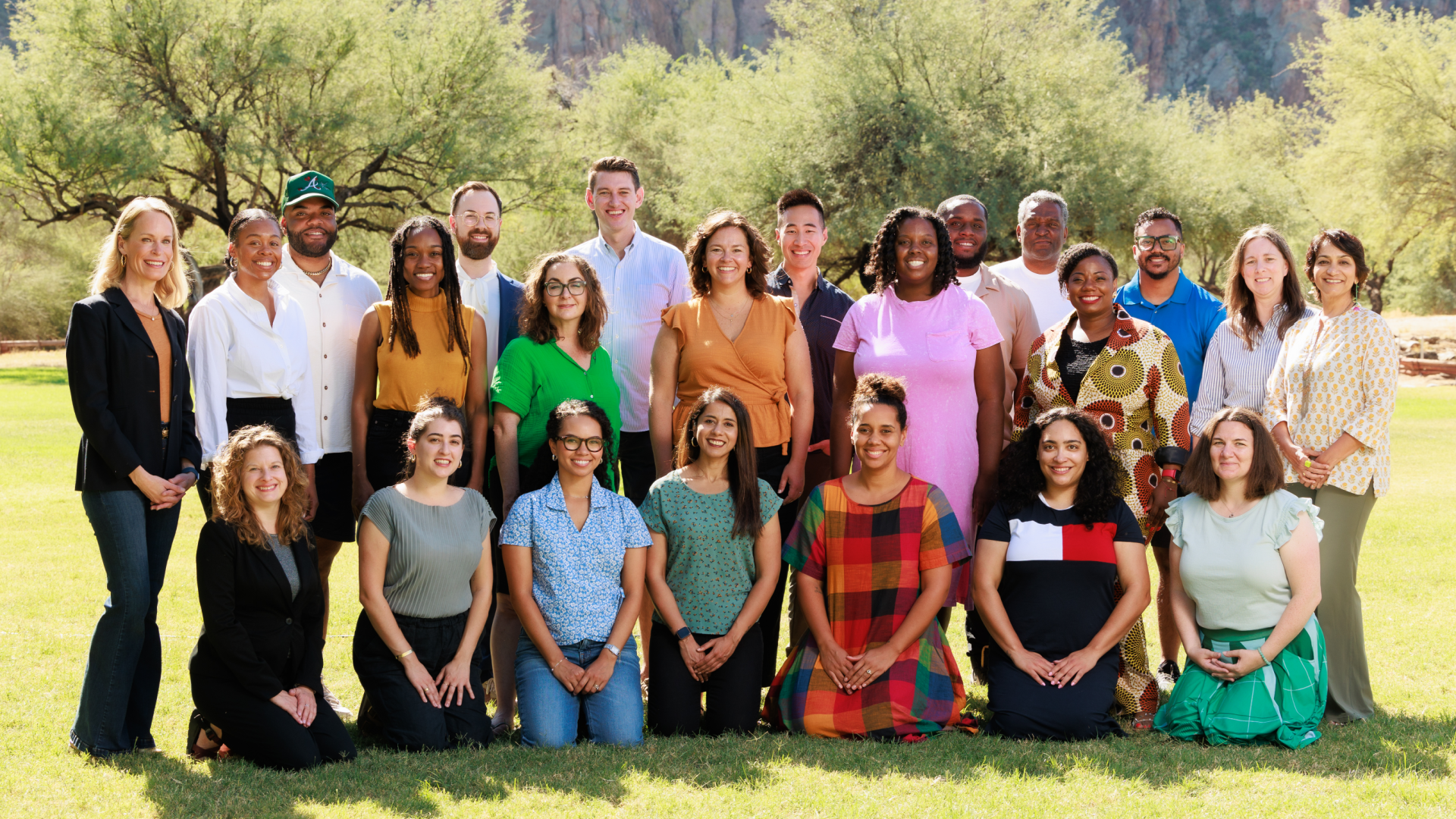Einhorn Collaborative is dedicated to addressing America’s growing crisis of human connection. The foundation is a new Independent Sector member advancing the science and practice of empathy, mutual understanding, and relationship building. We spoke with Jenn Hoos Rothberg, executive director of the Einhorn Collaborative, who has worked with the foundation since 2007.
IS: What is the foundation’s mission and vision?

Jenn Hoos Rothberg
JHR: Einhorn Collaborative seeks to address America’s growing crisis of connection. Despite our desire for connection and belonging, more and more Americans are living in isolation, loneliness, anxiety, and fear. And our economic, political, and social systems keep pushing us further apart – eroding our faith in our institutions and each other.
We believe that addressing America’s crisis of connection is not only critically urgent, but possible – and already underway in communities across our country. The prevailing narratives of distrust and division are not only flawed, but reversible. When we sit down to listen, learn, and share different perspectives, we unlock entirely new ways of seeing ourselves, each other, and the needs and values we share.
That’s why Einhorn Collaborative is advancing the science and practice of empathy, mutual understanding, and relationship building – so we can rediscover our common humanity and solve our nation’s greatest challenges together.
IS: How has your work changed as a result of your new philanthropic strategy?
JHR: In 2018 and 2019, we administered a strategic review to assess our past decade of our work as well as better understand the current cultural context our work sits inside. We collected feedback and did a lot of listening. All of this informed our transition to our new strategy and new name, Einhorn Collaborative. (You can read more about the lessons we learned during this process from my colleague Lucie Addison, who leads our learning and impact work here).

Photo courtesy of Einhorn Collaborative
I’m incredibly proud of the process we went through and how we put relationships at the center of both the “what” and “how” of our work going forward. The process emphasized for us how important it is to cultivate trust in relationships, particularly during times of significant change. This is true for us as a foundation, but it is also true for us as Americans.
Human connection is foundational to the way we think about our work. It’s why we focus on three interrelated strategic areas: Bonding, Bridging, and Building.
Our Bonding strategy is focused on developing our capacity to form and maintain healthy relationships, especially for young children, by helping families establish emotional connection in the first years of a child’s life. Our Bridging strategy is focused on reinforcing our ability to understand ourselves and each other, and positively relate across difference, especially for young adults, focusing on Gen Z. And our Building strategy is focused on bolstering a more relational and pluralist culture in America to help people prioritize human connection, see our shared humanity, and embrace our differences. We believe that, taken together, these three strategies can help holistically address the crisis of connection.
We also intentionally changed our name to lift up how we do our work – through collaboration.
In addition to supporting the key strategic pillars we believe are essential to addressing the crisis of connection, we’re also seeking to build our own capacity and the capacity of our grantee partners to more effectively be able to collaborate.

Photo courtesy of Einhorn Collaborative
Collaboration is what is necessary to solve our most common challenges together. There’s an active and committed ecosystem of actors – community organizers, educators, researchers, policymakers, thought leaders, cultural influencers, and funders – already addressing the crisis of connection. Yet the ability to consistently connect, coordinate efforts, and learn together is challenging.
We see an opportunity to fuel the conditions for collaboration among these actors – so we can harness our collective wisdom and actions to generate better ideas and achieve more lasting outcomes, together.
IS: What does this look like in action?
JHR: To give you an example, in our Bonding strategy, we’re building upon the groundbreaking research of the Nurture Science Program at Columbia University Medical Center, where we are collaborating with partners who recognize the critical role emotional connection plays in healthy child development and commit to working together to spread nurture-based research and practice – measures and tools inside pediatric practice – to help more families become emotionally connected in the earliest years of life.
We work in close partnership with our grantees to reflect on insights that emerge and pivot as necessary, with the goal of continuous improvement. Our aspirations for collaboration are based on the approaches and lessons of Collective Impact, a framework of conditions that produce mutually beneficial results for collaborators, from agenda-setting to backbone support to shared measurement in service of improvement.
In each of our focus areas, our longer-term goal is to work toward collaboration across multiple partners to advance a shared vision and agreed-upon goal, where we all sit at the table together, putting the problem in front of us rather than between us (or sliding it toward the grantee). This is the way we try to practice the core tenets of our mission in not just what we fund, but also how we fund.
IS: Independent Sector brings together a diverse community of changemakers at nonprofits, foundations, and corporate giving programs that are working to strengthen civil society and ensure all people in the United States thrive.
How does your work intersect with Independent Sector’s mission and our member organizations?
JHR: We are committed to working with a broad coalition of partners and peers to help shape a shared future for our country based on belonging, bridging, and connection. We routinely seek to engage with others with perspectives different from our own, as we believe that is essential for a healthy, civil society.
Our commitment to building a culture of belonging also means that we are unwilling to collaborate with people and organizations whose work is grounded in the dehumanization or rejection of entire groups. We regularly hold ourselves accountable by examining our contributions to social change efforts – personal, organizational, and systemic – in service of creating a country where all of us feel seen, heard, and valued.
We are particularly interested in Independent Sector’s work that seeks to build more trust inside (and between!) nonprofit and philanthropic organizations as well as throughout our civic infrastructure and social fabric. Trust is a foundational element of our efforts too, and we’re thrilled to be members of Independent Sector to help advance such a worthwhile and necessary aspect of our personal and communal lives.
The top photo, made by Lily-Anne Trainor, is courtesy of Einhorn Collaborative. Learn about other Independent Sector members and becoming a member.



